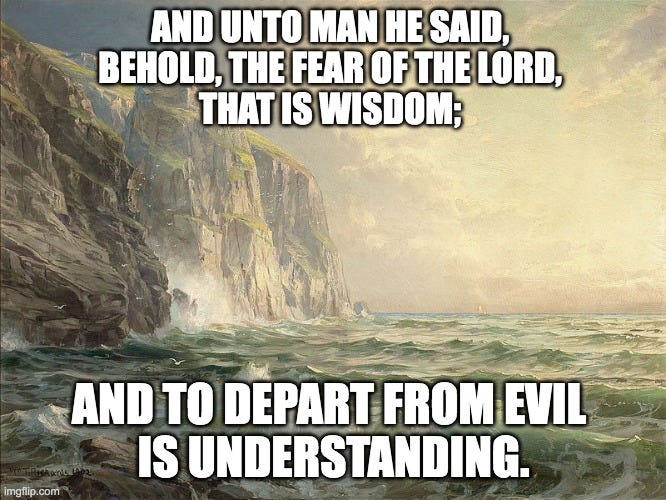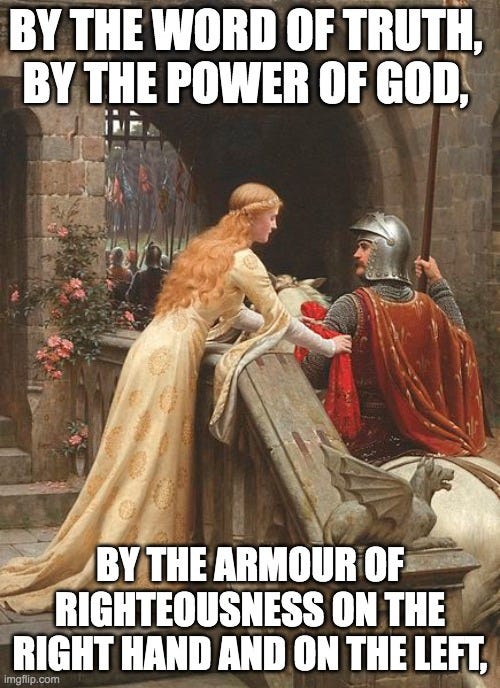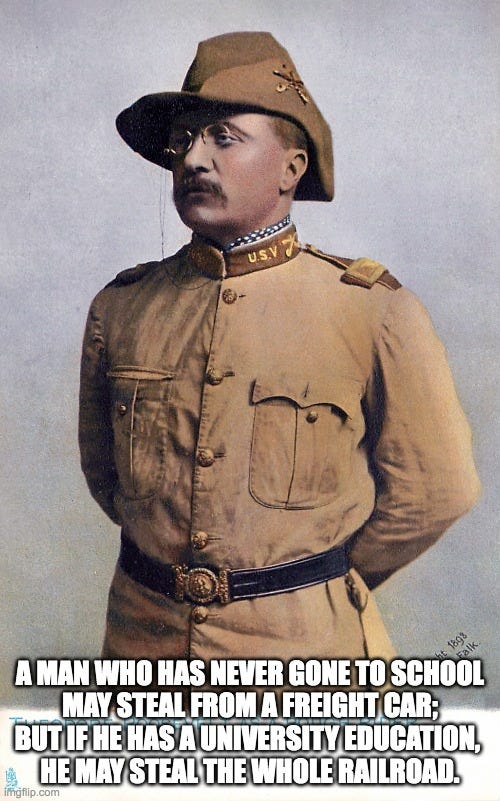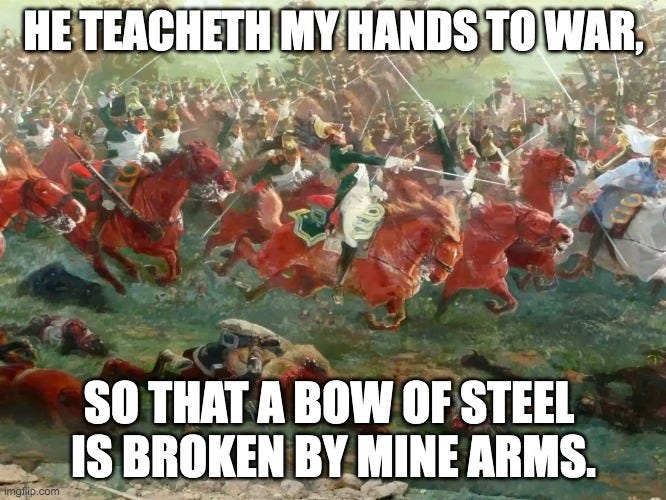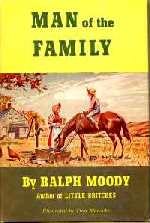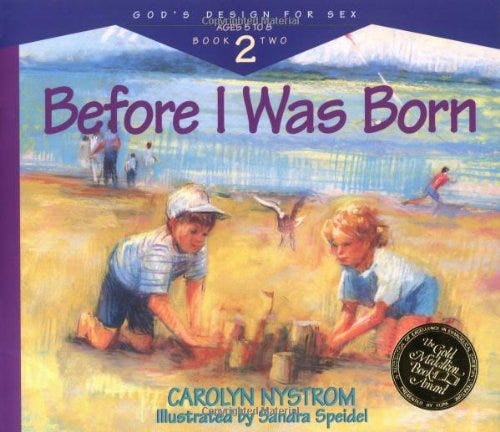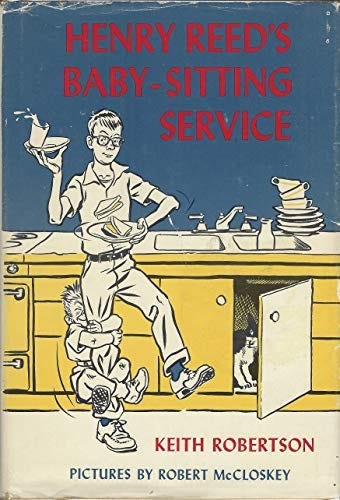In my day there was an expression popular amongst mothers, “Wait till your father gets home!” The modern reader, unfamiliar with the mothers of my day, might assume that the phrase indicated that mothers did not know how to use the woodshed. I can assure them that that is not true. For every one time that my father took his belt to my backside, my mother took her brush ten times. The difference between the two of them was not the readiness to paddle, but the severity of the offence for which one was paddled.
In her most recent post
seems to believe that human beings are born through a process of parthenogenesis. For those whose studies did not lie in that direction, parthenogenesis refers to species that reproduce using only one parent.If G-d intended children to be raised with harshness, men would give birth; not the pinnacle of compassion—mothers.
Rivka
Where is the Father?
Isa 64:8 But now, O LORD, thou art our father; we are the clay, and thou our potter; and we all are the work of thy hand.
God created human beings. The first person that He created was Adam. The second person that he created was Eve. The sexual union of those two produced children. In a natural sense, all children that have ever been produced have had a mother and a father. Unfortunately, obviously, many times, that turns out not to be the case functionally as one or the other parent dies or abandons the child. Or the mother just shacks up with some guy and doesn’t even tell him he’s a father. Or divorces the father. Etc.
But God’s design was that every child have a mother and father. Every single child.
Rivka, in her most recent response, suggested that if God had wished for children to receive corporal punishment, then they should have had the man give birth. This a staggeringly odd statement. Given that God designed all children to be born into a household with a father and a mother, and one in which the father was in charge and principally responsible for the more harsh acts of discipline as the child gets older, and the mother was principally responsible for the more gentle acts of breastfeeding and caring for the infant, it seems incredibly odd to say that God designed the child to be raised completely by one or the other of her parents.
Isa 9:6 For unto us a child is born, unto us a son is given: and the government shall be upon his shoulder: and his name shall be called Wonderful, Counsellor, The mighty God, The everlasting Father, The Prince of Peace.
The Difference with Daddies
Exo 20:12 Honour thy father and thy mother: that thy days may be long upon the land which the LORD thy God giveth thee.
Exo 21:15 And he that smiteth his father, or his mother, shall be surely put to death.
Exo 21:17 And he that curseth his father, or his mother, shall surely be put to death.
It might come as a shock to moderns, but when I was young, mothers and fathers were different. Mothers fed you at their breast, changed your diapers, cooked your dinners, and kissed your booboos. Outside of an occasional steak on the barbecue, fathers did not. They slept through the feeding, handed the child off to someone else for diaper changes, and said, “You’ll live.” They would occasionally grill a steak. On the barbecue. Outside.
Fathers instilled fear, pushed limits, and had fun. When the question was an ordinary one, you would appeal to Mother. When the situation was extraordinary, you would ask Father. It was not Mother who took me on my first motorcycle ride, nor was it Mother who almost got me killed on my first motorcycle ride. It was not Mother who rented the big motorboat on our vacation, but it was Mother who remembered to bring along food.
When I was sick in the middle of the night, I went to Mother. When I needed investment advice, I asked Father.
It seems to me that Rivka has shot herself in both feet, at close range, with a 12 gauge shotgun. She states that if God had wished for children to be spanked, He would have given them fathers.1 Well, he did!
Introduction
This post is in response to Rivka's recent post. It is part of a letter exchange where we compare Rivka’s vision of ‘Gentle Parenting’ with my more old-fashioned view of ‘Woodshed Parenting’.
That name comes from an American trope about misbehaving children being taken out to the woodshed by their father and ‘licked’, an old American expression involving an implement, a backside, and the physics of movement. The woodshed part was optional.
Bits and bites
Many of the following exchanges have the potential to evolve (via intelligent design) into full posts. They consist of snippets from Rivka’s post, and short responses from me.
What’s in a name?
We can hold space for the generations that came before us, and push ourselves harder, without denigrating the methods of our progenitors.
Rivka
I think that Rivka needs to work a trifle harder at not ‘denigrating the methods’ of her progenitors. Throughout her article she strawmans her opponents, using terms such as ‘harsh’ and ‘punitive’ and contrasting them with terms such as ‘loving’, and ‘gentle’. I’m a big boy (and so were they) so, you know, sticks and stones… but as far as an argument goes, that’s pure sophistry.
Let me be very clear. While I accept the term ‘harsh’ for fun, and for the sake of argument, her ancestors, and myself, would put the shoe very much on the other foot. We would cheerfully call modern methods of parenting ‘harsh’ and ‘unloving’ and far from ‘gentle’. Because, by definition, any parenting method that does not save a child’s soul from hell, whatever it may look like, is ‘hateful’… and every other negative word possible.
Psa 103:13 Like as a father pitieth his children, so the LORD pitieth them that fear him.
I do not believe that ‘Gentle Parenting’ is loving… because God is loving, and that’s not the way God acts. A name does not reality make. Calling your system ‘Gentle Parenting’ does not make it gentle. Calling your progenitors methods ‘harsh’, ‘punitive’, and unloving… does not make them so. (And, hint, it is rather denigrating ;) )
To clarify, I do not posit that harsh parenting is useful in a harsh world; I posit that harsh parenting is understandable in a harsh world.
Rivka
Again, we are not really talking about harsh. When I paddle backside I am not trying to raise feelings of shame, guilt, and fear. My hope and prayer is that those feelings will arrive naturally because of godly training. What I am trying to do with my punishment is cause a direct link to be established between the sinful actions and the pain.
No one doubts that some people who have used corporal punishment have been ‘harsh’ and even ‘unloving’ and certainly not ‘gentle’. But I doubt anyone would dare to claim that everyone who doesn’t is ‘loving’. Some of the screaming fits that I have seen… One needs to look at the entirety of a parenting system, and the parents using it, before attempting to use those words.
Harshness in parenting does not prepare a child for a harsh world; harshness in parenting emerges from a harsh world.
Rivka
And I would argue that gentle parenting emerges from a morally perverse world.
I would encourage Rivka to start using the language of those she opposes in describing her opponents. One speaks of primaries for the ‘Democrat’ party… however much one might wish to say ‘That morally perverse group of people’. I have described the system I hold to as ‘Woodshed Parenting’ for a reason.
Not so much
Awful, trying circumstances are best survived by those who were parented with gentleness and warmth.
Rivka
I would love to know the stats behind this statement. History has tended to show some awfully successful civilisations raised by some awfully harsh methods–Greece, Rome, the British Empire, the American West. Where does she get this idea that her methods have let people ‘best survive’? Can she point to even one great civilisation formed by these methods?
Rom 2:12 For as many as have sinned without law shall also perish without law: and as many as have sinned in the law shall be judged by the law;
Rom 2:13 (For not the hearers of the law are just before God, but the doers of the law shall be justified.
Rom 2:14 For when the Gentiles, which have not the law, do by nature the things contained in the law, these, having not the law, are a law unto themselves:
Rom 2:15 Which shew the work of the law written in their hearts, their conscience also bearing witness, and their thoughts the mean while accusing or else excusing one another;)
I believe that we are all born with an inner conscience
Rivka
Oh, we all agree that we are all born with an inner conscience, but that’s hardly the end of the story. Remember the people of Noah’s time? The people living in Sodom and Gomorrah? The Egyptians and Cannaninites and most of the history of Israel?
Saying we have a conscience is just the beginning of the tale. God exists and has His laws… and we rebel against them and break them constantly. We have a conscience, but we are also ignorant, foolish, and sinful.
A soft reprimand is enough to make a vulnerable child feel truly awful
Rivka
One thing I am trying to do is to train my children not to be vulnerable. This is part of the ‘drill sergeant’ analogy. My job as a father (grandfather, etc) is to take soft, vulnerable children and ‘toughen them up’. Not just physically, but morally. To instil upon them such firm and unwavering ideas of right and wrong that, launched into the war that is our world, they can not only survive but fight back. They can stand firm in the blowing storm.
I am also not trying to make them feel ‘truly awful’. One nice thing about corporal punishment done right is once its done, its done. Your bottom may be sore, but you can go play quite happily. Been there, done that.
Harsh punishments might even lead a child to “outsource” his morality
Rivka
Outsource his morality–now that's a vague term. Would that mean believing that obedience to God is correct regardless of one own feelings? Because if so, that's kind of the point. That is literally my goal.
When I tell a child that they are being punished for not doing what I told him to do, or doing what I told her not to do, my prayer is that I will be an intermediary pointing to the necessity of obeying God. God, God’s Law, God’s idea of moral behaviour. Not mine and certainly not theirs.
Avoiding punishment can become the goal instead of honest introspection
Rivka
I did some introspection and I can honestly say that in my entire life as a parent, grandparent, teacher, and camp counsellor, I have never once thought to engender ‘honest introspection’. If the phrase means what I think it does, then my goal would have been for them to engage in that activity before deciding not to be disobedient.
All kidding aside… this concept completely misses the point. Suppose that you are learning to drive. And you are driving kind of a large car. And every time you get to one particular intersection you run over the curb. The car rocks up and down, your parent gasps, the passersby all grin at you… stupid student driver.
If you have the slightest bit of sense, you are going to start being very careful to take that particular intersection more widely. Because of… avoiding punishment. The expense of the car repairs, the disapproval of the parent, and the grins of the passersby. But in so doing, you will ALSO be learning how to turn a large vehicle safely. Dozens of different intersections will teach this to you in dozens of different ways… until you will so internalise the principles that YOU will grin at the next student driver who jumps the curb. To internalise them as automatic reactions… not learning to ‘honestly introspect’ about your driving.
Obviously, everyone wishes to avoid punishment. The expression, "once burned twice shy," seems to cover that well. But the purpose of punishment is to create a link between a given type of behaviour and pain because that link teaches something about the nature of the behaviour.
When a godly parent obeys the Scriptures injunction and provides effective punishment at appropriate times the young child is then enabled later to form an understanding of morality. Which will serve her in good stead the rest of her life.
Isa 13:11 And I will punish the world for their evil, and the wicked for their iniquity; and I will cause the arrogancy of the proud to cease, and will lay low the haughtiness of the terrible.
Harsh consequences are intended, as I understand it, to reinforce a natural sense of right and wrong, not to instill it.
Rivka
Nope. Like, not at all. Indeed I don’t think any passage in Scripture says anything remotely like that.
Harsh consequences are intended to combat our sin nature. Harsh consequences are intended to save their soul from hell.
Jos 8:28 And Joshua burnt Ai, and made it an heap for ever, even a desolation unto this day.
Jos 8:29 And the king of Ai he hanged on a tree until eventide: and as soon as the sun was down, Joshua commanded that they should take his carcase down from the tree, and cast it at the entering of the gate of the city, and raise thereon a great heap of stones, that remaineth unto this day.
But harsh methods can overpower a child’s delicate balance of goodness and guilt,
Rivka
What?!? I would love to see a footnote or post about this. I can’t even picture the scales… goodness on one side, guilt on the other… why would I want them to balance? I want some good heavy lead weights on the side of ‘goodness’, and we can chuck ‘guilt’ in the trash.
Guilt is something we should have… when we’ve failed. Each moral choice should be between goodness and guilt, and our goal as parents should be to encourage ‘goodness’ to win, and ‘guilt’ to lose, every single time. Not that they balance! I think someone waxed a bit too poetic here.
.
Our moral compass is established by watching and copying our parents in word and deed. We learn by overt lessons, but mostly by imitating the behaviour we observe
Rivka
It seems to me that Rivka can’t quite make up her mind here. Is she proposing an innate goodness (the conscience?), learning by copying, or learning by teaching? And does the latter include training?
It could quite well be that she believes in all three, or four, or even eighteen. I think she could be a bit more clear.
a child surrounded by books learns to turn pages;
Rivka
Yup…but not to read. And it isn’t being surrounded by books that leads them to turn pages, but seeing others turn pages and their own play. Pages do turn, after all.
But if I wish my granddaughter to read, then she needs to be taught to read. And if she is going to learn to read French, then I will have to teach her, her mother’s French isn’t so good.
There are many things which are ‘caught’ through example. Most of them need to be ‘taught’ and ‘trained’ as well. And even if the parent refuses to punish, the natural world will do so. If you forget to put in the yeast, the bread won’t rise… no matter how much you cry and call that ‘harsh’.
And when it comes to moral actions, it is clearly taught, and previous generations have shown, that punishment of the young will prevent the need for so much punishment of the old. Because, make no mistake, there will always be punishment. Sometimes intentionally by authorities, but often naturally through consequences.
A deep dive into gentle parenting shows that the methods are most effective dealing with the children whose behavior is most challenging.
Rivka
I have absolutely no problem with the idea that some particularly dramatically different children may need dramatically different methods. But we didn’t start this exchange to discuss ‘how the parent with a radically challenging child’ should behave…but what God teaches us about how the normal parent should raise the normal child. Indeed, how cultures should raise their children.
(And it must be said that history is rather full of children’s lives being turned around by the woodshed.)
Repeated experiences of being seen and acknowledged when things are not going wrong
Rivka
When things are not going wrong… does that mean when the child does something right? Cause I’m afraid that Rivka’s own use of names might do her a disservice here. When she names something ‘harsh’ she might have come to believe it. I would encourage her to read the bibliography I have provided. She will see that being praised is a vital and important part of the woodshed. Praised when you do it right.
Maybe a circumstance, like an army, that has a non-random selection of young adult men only, is fertile ground for harsh consequences. I don’t know.
Rivka
The point of the drill sergeant is to prepare young men for war. It has nothing whatsoever to do with their non-random selection. Randomly selected young men would still need a drill sergeant if they were going to war.
a soft mother with an unwavering sense of right and wrong.
Rivka
An unwavering sense of right or wrong is a core preset of woodshed parenting. Fathers and mothers are a core precept of woodshed parenting. But not ‘softness’ so much. Gentle, kind, loving… and obedient to God’s Word in providing motivation via the backside. That kind of mother. And father.
Bibliography
New Addition
The Sugar Creek Gang… original editions.
These books are marvelous. They weave the principles of woodshed parenting through and through. But I cannot stress enough the caveat… original editions. Not the horrible modern, expurgated, twisted editions which seem dedicated to deleting the very issues we are discussing.
This book series is overtly Christian, and dramatically so. Unquestionably so. I can heartily recommend them for issues of the woodshed, and the helicopter. And I defy Rivka to read them and then talk so glibly about ‘harsh’ and ‘unloving’.
Recommended Reading List
The wise parent learns and teaches from a variety of sources. Some are of infinite importance, and some teach one or two lessons well;.
The Scriptures: Old and New Testament
For a good understanding of Woodshed Parenting one has to read the Scriptures. Both the ‘how to’ parenting principles, and the principles that should be instilled during parenting are found there. The Scriptures, Old and New Testaments.
There are some other books that I would recommend in addition to the Scriptures, but never instead. As with any recommendations I make, I would recommend that parents pre-read these books before giving them to their children.
The Little Britches series, by Ralph Moody
This series is semi-autobiographical, and takes place in the early 1900’s, mostly in the west of the United States. Issues of hard work, perseverance, responsibility and accountability are paramount. The woodshed is used, but so is the statement and action on clear goals of parenting; especially by the father. I can heartily recommend these books for parents and children. Parental discretion advised, as they include some hard themes and some objectionable language.
Captain’s Courageous, by Rudyard Kipling
This book might almost have been written as a direct antidote to modern helicopter parenting. A spoiled young man is forced to work for his living, and his father (in particular) is forced to confront his parenting failures. Although there is no woodshed in this book (the events taking place on a ship), the woodshed is used metaphorically.
Before I was Born, by Carolyn Nystrom
There are lots of things children need to learn. The most important are character-related: how to love God and love their neighbour. One of the most important ‘neighbours’ that we will ever have is our spouse. And before we get married, there will be sexual temptation from people, not our spouse. Sexual faithfulness should be taught early and often, and this book (not the later books in the series) helps do exactly that. It introduces the young child to ‘the facts of life’ in a way that enables the parent to direct the child down the path of Godliness: toward a faithful and fruitful married life.
The Bobtails meet the Preacher’s Kid, by Arthur Yeomans
This book involves orphans and a widowed aunt, thus the issues of parenting are addressed in crisis. Again, issues of hard work, responsibility, and respect for new authority are paramount. And there is a literal woodshed, literally and metaphorically used.
The Bobtails and the Cousins, by Arthur Yeomans
Aunt Grace and Mr Thacker are married, and they invite all of the cousins and their families to come to the farm, one after another. It includes lazy children learning to work, clean children getting dirty, and helpful children being helpful. It stresses the importance of having children and training them well.
No Ordinary School, by Arthur Yeomans
There is no woodshed in this book, either literal or metaphorical. The main character is a bit past his woodshed days. But this book addresses the issue of, “If my child has a weakness…” and challenges the oft used idea “… I need to not push him in that area”, substituting “… I need to work extra hard in that area to prepare him for life.”
Swallows and Amazons, by Arthur Ransome
No woodshed, at least not onscreen. But a great antidote to helicopter parenting. the children strongly respect authorities and parents. Deals with issues of responsibility and accountability.
Set in England… which is a fun plus. And beautifully written
Understood Betsy, by Dorothy Canfield Fisher
Children need to be exposed to difficult conditions to learn to be strong. But exposed by loving people. A twice orphan comes to a new home and is thrust into a world of chores, walking to school alone and, in a word, responsibility… learns far more than she could have dreamed possible.
Henry Reed’s Babysitting Service
This book is NOT of the depth that some of the other books that I recommend. But it is a very fun book, and is pretty anti-helicopter parenting. Oh, and its part of a series, so if you like it you have more ahead of you.
Thank you for reading Von’s Substack. I would love it if you commented! I love hearing from readers, especially critical comments. I would love to start more letter exchanges, so if there’s a subject you’re interested in, get writing and tag me!
Being ‘restacked’ and mentioned in ‘notes’ is very important for lesser-known stacks so… feel free! I’m semi-retired and write as a ministry (and for fun) so you don’t need to feel guilty you aren’t paying for anything, but if you enjoy my writing (even if you dramatically disagree with it), then restack, please! Or mention me in one of your own posts.
If I don’t write you back it is almost certain that I didn’t see it, so please feel free to comment and link to your post. Or if you just think I would be interested in your post!
If you get lost, check out my ‘Table of Contents’ which I try to keep up to date.
Thanks again, God Bless, Soli Deo gloria,
Von
Links
Upside Down Discipline
I would not wish to be a drill instructor today. Well, to be honest, I would probably never wish to be a drill instructor, but definitely not today. Ten minutes later, dressed in trousers, undershirt, and shoes, I was lined up with the others in ragged rank s for setting-up exercises just as the Sun looked over the eastern horizon. Facing us was a big br…
Learning in Silence
To the chief Musician, to Jeduthun, A Psalm of David. Truly my soul waiteth upon God: from him cometh my salvation. Psalm 62:1 (KJV) “Surely in silence my soul waits for God.” Book of Psalms for Singing I love languages, and one of the things I love about them is how complex they are. How much depth there is to words and meanings of words. When I started …
Woodshed Parenting
Intro So, yet another letter exchange! It seems like it is becoming my mainstay. Which I love! This one is with Just plain Rivka who writes the logic and morality substack. Thanks for reading Von’s Substack! Subscribe for free to receive new posts and support my work.
Technically, of course, what she said was ‘men would have given birth’. What the process of giving birth has to do with it she will have to explain. Unless she wishes to propose that, throughout history, only the ‘gave birth’ person has paddled the backside of the children… the ‘giving birth’ part is irrelevant. God literally commands fathers to physically punish their sons.








